In a remarkable sign of progress, patients across the nation now entrust their primary care to Family Nurse Practitioners. Join the ranks of this thriving field by pursuing your Doctor of Nursing Practice (DNP) at Nebraska Methodist College.
As a nurse with a terminal degree signifying the height of your profession, you'll be uniquely qualified to translate your years of experience into holistic healthcare treatment with an emphasis on provider-patient interaction.
Why Choose Our BSN to DNP – Family Nurse Practitioner Program?
Nebraska Methodist College’s BSN to DNP – Family Nurse Practitioner program offers a flexible, high-quality education designed to prepare nurses for advanced practice and leadership roles. The program is accredited by the Commission on Collegiate Nursing Education (CCNE), ensuring it meets rigorous national standards. With primarily online coursework—both synchronous and asynchronous—and only three required on-campus visits, students can balance their education with personal and professional responsibilities. The curriculum extends beyond clinical training to encompass leadership, health policy, informatics, population health and scholarly project development, equipping graduates to influence healthcare systems and delivery. Students also benefit from strong academic support, including access to a writing coach, a statistician and counseling services to help them succeed throughout the program.
More and more states, including Nebraska, are granting Full Practice Authority to Nurse Practitioners, which means they can operate their own clinics and assist patients to the full extent of their certification as an NP.
A nurse in the DNP program online is prepared with the knowledge, skills and clinical experiences necessary to diagnose and treat individuals across their lifespans, providing ambulatory care within an outpatient clinic in both urban and rural settings.
Family Nurse Practitioner BSN to DNP Curriculum Highlights
The BSN to DNP program requires a nurse to complete a total of 75 credit hours. Of this, 57 credit hours can be obtained via synchronous and asynchronous online learning and 18 credit hours (1,080 contact hours) are devoted to clinical practice. Clinical practice requirements are completed in a preceptor experience.
A full-time student in the online DNP program can graduate in 36 months; a part-time student can finish in four to five years.
Career Outcomes with a BSN to DNP – Family Nurse Practitioner Degree
Graduates of a BSN-to-DNP program with a Family Nurse Practitioner (FNP) focus can pursue a wide range of impactful and high-level career paths. Most commonly, they work as family nurse practitioners in outpatient or primary care settings, where they diagnose, treat and manage health conditions across the lifespan while emphasizing preventive care. Others may step into advanced clinical leadership roles, such as clinical directors or service line leaders, using their doctoral training to lead system-level improvements in patient care. Opportunities also exist in healthcare administration and management, where professionals oversee operations, staffing, budgeting and policy implementation as medical or health services managers. With their advanced education, these nurses are also well-positioned for roles in academia, where they can teach in nursing programs, develop curricula and mentor future nurses. Some pursue careers in policy, research or consulting, influencing public health initiatives, conducting clinical research, or advising healthcare organizations on evidence-based practices and system reforms.
Salaries for Nurse Practitioners vary widely in the U.S. and are based upon many factors including geography, job description, specialty and experience. According to the Bureau of Labor Statistics, the median salary in May 2024 for Nurse Practitioners in the United States was $129,210 per year, with a much faster than average projected job growth of 35% between 2024 and 2034.



